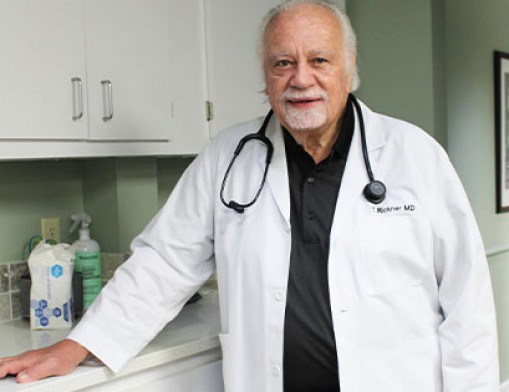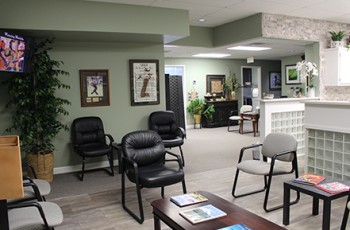
Is a vasectomy really painless? What do I do about swelling after the procedure? Is it invasive? Does a vasectomy affect my sex life? What should I do before the procedure?
Getting a vasectomy is a safe and simple procedure that provides an effective form of birth control without enormous risks. If you and your partner decide you need a more permanent approach to birth control, there are a number of questions to ask before a vasectomy. After getting all of your questions answered, you and your partner can work together to come to a decision.
While this article is a starting point, don’t be afraid to ask any other questions you have during our consultation. As your doctor, I am prepared to help you understand your vasectomy and will be able to provide all the answers you may have.

1.Why is shaving the night before a vasectomy beneficial?
When someone shaves the razor causes small abrasions or even very small puncture wounds over the area that is shaved. These small injuries heal over the next few hours. How long it depends on how deep or large the wound is that has occurred. Normally since these are very small unless someone cuts himself when he is shaving a few hours is all that is required. So as a minimum shaving should occur at least 12 hours before the vasectomy is performed. This would keep down the incidence of infections. Although there are no studies it is probably true that shaving should occur at least one and maybe even two days before the vasectomy. The hair growth that would occur over that time would be insignificant but the benefit in diminishing skin injuries and subsequent infection would be great.

2. Will my ability to have an erection following vasectomy change?
There should be no change in a man’s ability to achieve an erection following a vasectomy. The mechanism for trapping blood in a man’s phallus is completely separate in location from the vasectomy site. as well as from where a vasectomy occurs. Also, it is common to believe that testosterone may have something to do with erections, but it actually does not. Libido is dependent on testosterone but that is by a different mechanism and only indirectly effects erections. A vasectomy does not change either the blood supply to the phallus or testosterone levels.
3. What is a no scalpel vasectomy?
In 1989 the no scalpel technique came from China to New York City and subsequently spread across the country. No scalpel is used to make an incision. Rather a very pointed instrument is used to precisely puncture the skin directly over the vas deferens (the tube carrying sperm). This puncture site is subsequently spread wider so the Vas can be brought to the surface and transected. The Vas is then transected and occluded. The occluded ends of the Vas are allowed to retract. This small puncture wound then contracts and no suture is even required. The small puncture wound heals itself in 24 to 48 hours with no suture needed. This small opening has also helped cut down on wound infections.
4. How to use ice correctly.
The coldness produced by ice is beneficial in many situations because lower temperatures result in contraction of blood vessels. Therefore, bleeding is minimized using ice. However, ice cannot be placed directly on the skin or else there will be complete loss of blood supply to that area involved. That skin will die if the ice is left in direct contact for too long a period. So, first, never place ice directly on your skin. Rather ice should be inside some form of a protective covering. Secondly, ice should be used for around 20 minutes at a time and no more frequently than every two hours. This should continue for somewhere between 1 to two days following a vasectomy. Thirdly, considering the advances indicated above where the dissection is much less than before, ice is not needed for as long a period of time. In days gone by ice was used intermittently for 3 to five days. Now usually 2 to three days is sufficient if accompanied with activity restrictions.

5. What is a painless vasectomy?
How can a vasectomy be painless? Well, it is actually not totally painless but almost. Although it seems a contradiction the higher the number the smaller the size of a needle. Technology has now advanced and whereas needles of 23 and 25 have been used for some time, needles are now being manufactured that are 33 and even 35-gauge (out of South Korea at first). However, those are so small that not enough of the anesthetic can be administered, even though those needles usually cannot be felt hen used. The newer alternative is not to use needles at all. Rather we now can use a spring-loaded injector that creates a high-pressure spray. This spray penetrates the skin with no evidence of entry at all. This technique creates instantaneous anesthesia in area of the spray. During a vasectomy 2 to 3 sprays are required on each side. The first 1 on each side may have some discomfort but subsequently are not felt at all. Most men say that the first spray feels about like having a rubber band snapped against your skin. A further advantage of this technique is that the volume of anesthetic that is administered is extremely small compared to old volumes with the use of needles. Consequently, side effects of anesthetic administration are almost eliminated.
Now there are many other questions that could be asked and these will be supplied when you visit our office before your vasectomy. We encourage you to bring your questions with you as well.
At Tulsa Vasectomy Clinic, vasectomy procedures are done in-office and will usually take about 20 to 30 minutes. Your time is important to us. You can schedule your consultation and vasectomy for the same day or on separate dates.
See more about Frequently Asked Questions About Vasectomy:
https://www.valuenews.com/frequently-asked-questions-about-vasectomy-news-article_5387



